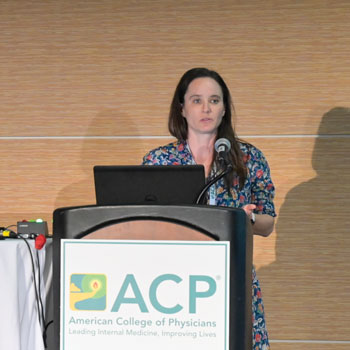Profits before patients: Private equity and commodification
Health care system consolidation and market- and profit-driven motivation have become at odds with the realities of health care, where market forces do not perfectly align with the product line.
The saying "may you live in interesting times" comes to mind when viewing the impact of private equity on large and small health systems and practices across the country. The latest "interesting time" is happening around Dallas-based Steward Health Care, a nationwide health care organization that has filed for bankruptcy. This could result in multiple hospital closures, leaving many communities without access to essential health care services.
The "Steward crisis" is emblematic of a deeper problem across the country. Private equity firms have been taking over hospitals, health systems, and practices with profit as a primary motive. In Steward's case, Senators Elizabeth Warren and Edward J. Markey of Massachusetts have estimated that the equity firm involved walked away with a profit of $800 million while saddling the hospital chain with crippling debts.
Initial forays by private equity firms into health care were fields such as gastroenterology, ophthalmology, and dermatology, where high volumes of well-reimbursed procedures could generate the maximum profit. However, firms rapidly realized that hospitals and primary care practices could also be leveraged through system consolidation. It has quickly become apparent, though, that their market- and profit-driven motivation is at odds with the realities of health care, where market forces do not perfectly align with the product line. Health is not a predictable commodity that can easily be bought, sold, or bartered for profit.
Many private equity ventures have collapsed. For example, Envision Healthcare, acquired in a $9.9 billion buyout in 2018, the Center for Autism and Related Disorders (CARD), bought by Blackstone for a reported $600 million, and American Physician Partners, run by Brown Brothers Harriman Capital Partners, all filed for bankruptcy in 2023.
Interestingly, these bankruptcies were predictable. According to an April study in Health Affairs Scholar, private equity firms appear to make short-term investments based on a perceived short-term profit opportunity and hold onto health care assets for an average of only three to eight years, hardly an investment model designed for long-term stability. The high-profit, high-return-on-investment focus inherently conflicts with the altruistic ideal of health care and the goal of equitable and affordable care for patients. Cost-cutting through staff layoffs, salary cuts, reduced benefits, and increased workloads for more efficiency leads to lower job satisfaction and higher turnover rates for experienced workers. These can result in longer wait times, increased medical errors, poorer overall patient outcomes, and higher mortality.
Other profitability measures could fundamentally change the landscape of health care. For example, private equity's elimination of costly, low-margin services such as EDs and primary or pediatric care services and increased focus on high-profit, high-margin services are detrimental to overall community health. Other effects such as market consolidation reduce competition and lead to regional monopolies, causing a misalignment between the services that a community needs for a vibrant and equitable health system and those beneficial to the for-profit entities. Practices and hospitals owned by private equity also tend to have higher billing rates and may use up-charging or balance billing (charging patients for the difference between the insurance payment and actual bill), resulting in increased costs and reduced coverage or benefits.
Physicians have not been spared the toll of private equity intrusion into the business of health care. The proportion of physician-owned private practices dwindled from 53% in 2012 to 44% in 2022, according to a 2023 report from the American Medical Association. Smaller stand-alone practices were the hardest hit, and the number of practices with 50 or more physicians rose from 14.7% in 2012 to 20.2% in 2022. In the meantime, the number of employed physicians has grown, such that by 2018, the number of employed physicians outnumbered their counterparts who owned their practices.
An ACP survey published in March by JAMA Internal Medicine found that 60% of physicians had a negative view of private equity involvement in health care. Many respondents expressed concern about the impact of private equity on physician well-being, health care prices, and health equity. Private equity ownership was rated overall worse compared to independent or not-for-profit entities.
The turmoil and uncertainty brought on by the "churn" inherent in the private equity health care business model are extremely harmful to affected communities. For example, Steward Health Care's bankruptcy plan proposes to close or sell all its 30+ hospitals nationwide, which will destabilize health care services in nine states, including Massachusetts, Florida, and Texas. Steward's assets are likely to be acquired by other private equity firms, who will undoubtedly repeat the "profitability" cycle.
The overall effect of private equity ventures in health care has therefore been a shift away from patient-centered, equitable care towards an "industrially efficient" business-oriented approach that has prioritized profit and financial gain over patients' and communities' well-being. This is at odds with ACP's principles holding health as a human right and calling for access to high-quality, patient-centered, accessible, and equitable care for all. Profit-driven industrialization of health cannot be the cornerstone of a functional health care system.
The College has recognized the potential harms of unbridled takeover of health care systems in a position paper titled "Financial Profit in Medicine," published in Annals of Internal Medicine in September 2021, and has called for a cautious, evidence-based approach to the integration of private equity in health care, as well as increased transparency of private equity investment and more oversight to prevent adverse effects, including reduced access to care and the erosion of patient care quality. We must examine the short- and long-term effects on patients, communities, and health care workers so that we can better develop policies and guidelines to govern these relationships.
Undoubtedly, the system can potentially benefit from infusion of resources, improved efficiency, and reduced cost, but not at the price of our health. The College and other professional organizations must work with regulatory agencies, legislators, and policymakers to craft a set of principles for these deals that do not harm patients and health care workers or burden already stretched public systems.
As we watch the slow derailment of these private equity ventures, we must ask: How many comparable stories are set to play out in the future? Which cities or communities will be impacted? This uncertainty creates "interesting times" for all involved in health care and re-emphasizes the fact that our health, our fundamental human right, is not a chip to be gambled at the roulette tables of private equity firms, nor should it be traded like pork bellies on the futures market. That would be akin to putting our life, liberty, and pursuit of happiness up for sale. We must take charge and act on our own behalf and on behalf of our patients and communities.





